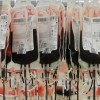The fight against Ebola
Interview with
There's no cure for Ebola, however people can be treated although facilities in  countries like Sierra Leone are under huge strain coping with the outbreak and the death rate is extremely high. Charities and governments around the world are sending people and equipment into the infected areas to keep on top of the outbreak. The UK government have recently pledged £20 million to open and operate three diagnostic laboratories to help test for the disease.
countries like Sierra Leone are under huge strain coping with the outbreak and the death rate is extremely high. Charities and governments around the world are sending people and equipment into the infected areas to keep on top of the outbreak. The UK government have recently pledged £20 million to open and operate three diagnostic laboratories to help test for the disease.
One of those labs is in Kerry Town, which is one of the areas worst hit by Ebola in the west of the country. Chris Smith caught up with Marie Blackman Northwood, a biomedical scientist with Public Health England. She's traveled out to Sierra Leone to help to set up and run one of these labs...
Marie - At the moment, the treatment centre is based on receiving referral cases throughout the community. So, that's a lot of small villages based around Kerry Town. People can travel for miles. It's not quite like England where things are very accessible and down the road. So, they rely on an ambulance service. to be able to get them to the treatment centre. We've had a few cases admitted. It's sometimes adults, children at different stages of being infectious. We have had people who have moved on and done well in the centre, but we have had casualties of Ebola as well. However, we have had people admitted who have had malaria which exhibits very similar symptoms. So, we are doing testing for both Ebola and malaria. I don't think someone's being quite so happy see a malaria positive test because it does mean that we can separate that person from someone with a suspected Ebola and effectively treat as well.
Chris - What are the facilities like?
Marie - It's very basic but good at the same time. we did bring in a lot of equipment from the UK. We are using a polymerase chain reaction platform. We have brought in portable cabinets to isolate the organism. And so, we're working in very safe practices. It's very important that we can get the turnaround times which we aim for four hours to give results especially for patient within the centre.
Chris - How are the locals taking to your presence?
Marie - They have been absolutely marvellous. They welcome the help. For them, it's seen as, we need people to come in and help because our health system has fallen down. The economy was on the up and the sad story is that because of Ebola, it's taken quite a hit. So, to have people coming in and still wanting to come and visit - what is a very beautiful country - is a joy to them, but a lot of people's response towards myself and my colleagues has been thank you.
Chris - And you're coming home soon. Are you at all concerned because there have been a number of cases of people who've been working like you are at the moment and they faced quite a bit of prejudice, they face people ostracising them because of fears that they may pass on Ebola?
Marie - I did have my concerns before I left, but I did say to people that you've got to look at this in a rational way. I'm working in the laboratory quite protected. I've had training. I've had to wear a lot of protective gear. I've had limited social contact out here. also, we have screening processes up and running now at the airport. I've been screened so many times whilst out here as well. And I've taken a self-responsibility of monitoring myself. So, I wouldn't want to put anyone in danger especially my family that I'm coming back to and I'm really looking forward to hugging and being around.
- Previous The knock-on effect of Ebola
- Next What is Ebola?










Comments
Add a comment